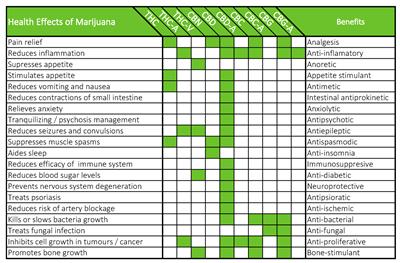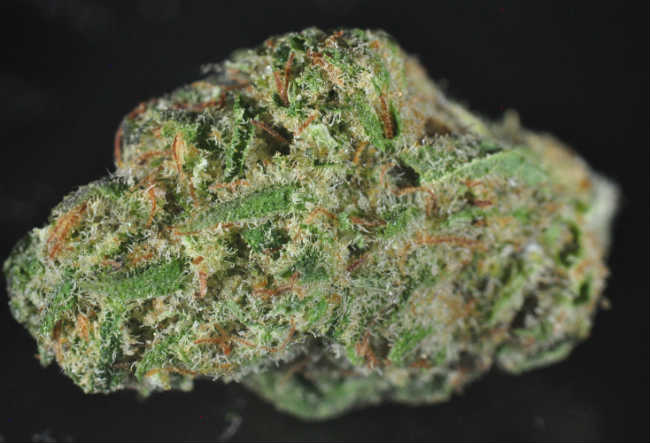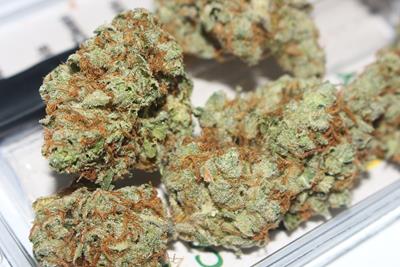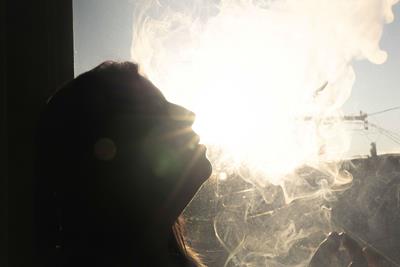
Saturday December 29, 2018
 Health/Science
Health/Science
As previously explored on PotGuide, a complex variety of factors can affect how cannabis impacts memory and how sharp or muddled a person’s high state is. Fear not cosmic travelers, because a few universal rules can help navigate the high experience towards clearer, more memorable highs.
Check out the tips below to learn how to combat the fogginess that sometimes accompanies a marijuana high.
Understand the Cannabinoid Ratio
A cannabinoid ratio favoring CBD over THC is the best clinically tested way to combat adverse mental effects when consuming, even with significant amounts of THC present. To a lesser extent, an even ratio has been shown to help fend off the fuzzies as well. However, this might be simpler said than done. Finding a shop with a reliable, high-potency CBD strain is the first step. Even then, CBD flower stock is often spotty due to lack of demand.

If you’re on the hunt for high-CBD strains, look for shops specializing in medical cannabis. Ask for recommendations from budtenders and friends. Finding a potent CBD strain can be difficult, but more shops are carrying “entry-level” strains with a decent amount of CBD (5-12%) and low THC. It is however getting easier these days to buy things like CBD isolate, so one easy solution is to dab CBD first, and then take a few puffs of moderate to low THC flower. The mixture can take place in your body instead of the bowl.
Potency is Important
Especially for those with average to lower tolerances, potency can be one of the biggest contributors to a foggy high. The modern trend of high-THC flower, with buds testing in the 25-30% THC range might be more than many users need. Inhaled cannabis crosses the blood/brain barrier extremely quickly, and for many consumers a few puffs can be all that’s needed to get sufficiently baked. Starting as slow and low as possible and working up is a good method to getting a clearer high. Anecdotal reports claim that dabs leave a “cloudier” head as a general rule, but this will vary person to person since cannabis affects everyone differently.
Consider the Strain and Terpene Profiles
As we’ve covered on PotGuide before, terpenes are the scented oil secretions of plants. Though terpenes physically make up a small part of cannabis, they easily cross the blood-brain barrier and can generate entourage effects from trace amounts. Pinene is thought to aid in memory and focus, but is often present in high amounts in strains like Hazes, which can be too racy for many people to concentrate.

Linalool, present in lavender and floral strains, imparts a calming, sedative effect, and might put some to sleep, but offer clarity to those suffering from anxiety. Myrcene is the most common terpene found in cannabis, and is thought to enhance the effects of THC while being sedative. Its presence may override or alter some standard terpene effects (most likely the case with Hazes). Limonene can be a great mood booster and impart energy, (many claim it can break up “sludge-brain” associated with depression), however some find the boost hard to steer, making it difficult to focus.
Because each of us brings different needs and circumstances to a high, the associated terpenes may add to or reduce one’s personal feeling of fogginess.
To help you decipher your personal ideal terpene profiles, keep a journal of the strains your encounter, the terpenes present, and your resulting effects. You’ll have to train and trust your nose a bit, but more dispensaries are providing terpene testing as awareness of these compounds spreads.
Offload Your Memories
For eons, humans have been offloading our memories to other mediums for storage. We do it because it’s efficient and effective. If your mind has trouble encoding memories automatically when medicated, a simple solution is to take it off autopilot.

Write things down, make notes, set reminders, and take pictures. Reference memory is unaffected when high, and adverse effects tend not to last beyond the high state, so a simple written note can be all that’s needed to fight the fog. The key in this step is review, or getting accustomed to looking at the material once you’ve offloaded it. Reviewing, even once, helps things get better cemented into our memory.
Timing/Planning Your Consumption
Choosing when you consume cannabis can greatly improve the results. As Dr. Mitch Earleywine notes, most things tend to stay encoded even if they were experienced prior to consuming. So, maybe save the celebratory blunts for after your graduation ceremony. Alternatively, you might not care about remembering a run, just enjoying it.
If you know you’re prone to fogginess, some simple planning can curb the effects.
Inhaled cannabis will start to act immediately upon uptake, and is potent for around 20 minutes after consuming. A standard high for most people will last about 2-3 hours (for inhaled cannabis). If you want to be social before the band goes on, but be loose when the music starts, schedule it. For edibles, typical onset is between 45min-2 hours (affected by metabolism, digestion and motility) and last between 3-6 hours (depending on your liver). Again, everyone is different, but due to the more potent effect of 11-hydroxy-THC, edibles have a higher likelihood of affecting memory and producing a foggy high.
The interaction of memory, cognitive function and cannabis is a complex relationship that science still has a long way to go to fully understand. A variety of factors including tolerance, genetics, cannabinoid profile, circumstance and body chemistry can determine the quality of a given high. Understanding and exploring each of these factors can help us better understand and work with our bodies to cultivate positive and enriching cannabis experiences.
Does your memory become foggy after consuming cannabis? Share your experiences in the comments below.
Photo Credit: Jakub Kriz (license)







